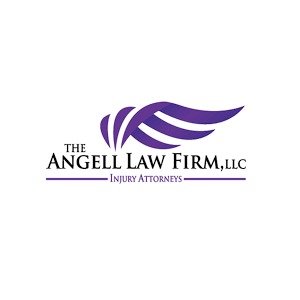Best Toxic Tort Lawyers in Charleston
Share your needs with us, get contacted by law firms.
Free. Takes 2 min.
List of the best lawyers in Charleston, United States
About Toxic Tort Law in Charleston, United States
Toxic Tort Law encompasses the legal issues surrounding harm incurred due to exposure to hazardous substances. In Charleston, as in other areas of the U.S., these cases often involve pollutants contaminating the air, water, or soil, exposure to hazardous materials at the workplace, and prescription drugs triggering undesired side effects. The variety of potential polluters and the substances they unleash means that Toxic Tort Law can be complex, often requiring a multi-disciplinary approach for adequate resolution.
Why You May Need a Lawyer
You may require legal assistance in situations where you've been harmed as a result of exposure to harmful substances. This harm might be a health issue, including serious ones such as chronic diseases and cancers, a decrease in property value from contamination, or other losses. Additionally, these cases often involve large corporations or governmental entities, making it crucial to have qualified legal representation to ensure a fair fight.
Local Laws Overview
Since Toxic Tort Law falls under a combination of federal and state laws, it's necessary to know that in South Carolina, home to Charleston, the principal resource is the South Carolina Pollution Control Act. With its "strict liability" approach, the Act holds polluters responsible for damage, regardless of the degree of care undertaken. Additionally, laws like the South Carolina Solid Waste Policy and Management Act and the Hazardous Waste Management Act also play a role in these cases.
Frequently Asked Questions
How do I know if I have a Toxic Tort claim?
You may have a Toxic Tort claim if you've suffered harm from exposure to a harmful substance released by a corporation or other entity. However, connecting your injury or loss to the substance requires scientific evidence, making legal and medical consults necessary.
What compensation can I receive from a Toxic Tort claim?
The compensation in such cases can cover medical expenses, loss of income, physical and emotional suffering, and any property damage caused due to contamination.
Are there any specific time limits to file a Toxic Tort lawsuit in Charleston?
Yes, like other personal injury claims, Toxic Tort cases have a statute of limitations. In South Carolina, you generally have three years from the date of the injury to file a lawsuit.
Can a claim be filed for exposure that occurred in the past but the harm is only apparent now?
Yes, often the harmful effects of toxic exposure are not immediate. In such "latent" cases, Charleston law commences the limitation period from when the person reasonably ought to have realized the damage and its cause.
Who can be held responsible in a Toxic Tort claim?
Potentially, a variety of parties can be held responsible, from manufacturers of toxic substances, the owners of the site where exposure occurred, to employers not providing adequate protective measures. The specifics will depend on the facts of your case.
Additional Resources
For Toxic Tort issues, the South Carolina Department of Health and Environmental Control is one of the primary resources for information about environmental hazards. The Environmental Protection Agency's website also offers valuable details about different contaminants and related legal guidelines.
Next Steps
If you believe you have a Toxic Tort claim, it's important to document your exposure and medical condition. Then search for an experienced lawyer within the toxic tort field. They can guide you on the feasibility of your claim, potential defendants, and compensation possibilities. Always remember, consulting an attorney sooner rather than later is advisable due to the limitation period involved in such cases.
Lawzana helps you find the best lawyers and law firms in Charleston through a curated and pre-screened list of qualified legal professionals. Our platform offers rankings and detailed profiles of attorneys and law firms, allowing you to compare based on practice areas, including Toxic Tort, experience, and client feedback.
Each profile includes a description of the firm's areas of practice, client reviews, team members and partners, year of establishment, spoken languages, office locations, contact information, social media presence, and any published articles or resources. Most firms on our platform speak English and are experienced in both local and international legal matters.
Get a quote from top-rated law firms in Charleston, United States — quickly, securely, and without unnecessary hassle.
Disclaimer:
The information provided on this page is for general informational purposes only and does not constitute legal advice. While we strive to ensure the accuracy and relevance of the content, legal information may change over time, and interpretations of the law can vary. You should always consult with a qualified legal professional for advice specific to your situation.
We disclaim all liability for actions taken or not taken based on the content of this page. If you believe any information is incorrect or outdated, please contact us, and we will review and update it where appropriate.








